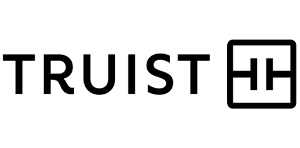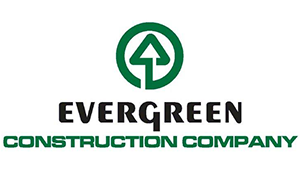Federal Updates
Reconciliation Package (Inflation Reduction Act of 2022) Passed by the Senate
After over a year of negotiations, the Senate passed a budget reconciliation package weekend. The Inflation Reduction Act of 2022 comes after the Senate unexpectedly reached a deal with Senator Joe Manchin, who had previously said he would only support legislation to reduce drug costs. The bill passed on a party line vote after an all night “vote-a-rama”. The package is scaled back from what leadership initially hoped with Build Back Better, focusing on climate change, reducing drug costs and taxes for large corporations. However, Democrats are celebrating it as a win ahead of midterm elections. The package heads to the House next where lawmakers are expected to return from recess to vote on Friday.
This package does not include the more than $150 billion in much-needed housing investments that were originally proposed in Build Back Better. The Inflation Reduction Act does include $1 billion for affordable housing energy upgrades, but excludes public housing as an eligible use of funds.
The Senate is now adjourned for recess and the House is expected to return briefly to pass the Inflation Reduction Act before leaving town again.
Senate Draft HUD Bill Released
The U.S. Senate Appropriations Subcommittee on Transportation, Housing and Urban Development, and Related Agencies (THUD) released its draft spending bill for 2023. The bill provides $70 billion, including $10.3 billion in offsets, for HUD’s affordable housing, homelessness, and community development programs. This is an increase of $4.3 billion over FY22-enacted levels, but $3 billion less than the House bill and $1.9 billion less than the amount proposed in President Biden’s FY23 budget request.
Funding highlights in the bill include:
- $30.18 billion for Housing Choice Vouchers, which is an increase of $2.8 billion over FY22-enacted levels but less than what’s proposed by the House and President Biden.
- $225 million increase to the HOME Investment Partnership program ($1.725 billion), which is $50 million more than the amount proposed by the House.
- Project-Based Rental Assistance ($14.687 billion), Homeless Assistance Grants ($3.545 billion), the Housing for Persons with AIDS (HOPWA) program ($468 million), and the Public Housing Capital Fund ($3.405 billion) would all receive more funding than in FY22, but less than the amounts proposed by the House bill.
- The Community Development Block Grants (CDBG) ($4.818 billion) would be provided less funding in the Senate bill than the FY22-enacted levels or the amounts proposed by the House.
For more details, see NLIHC’s updated budget chart and analysis.
The bill must pass through the Senate Appropriations Committee before being considered by the full Senate. Then the House and Senate must conference their two budget bills to reach an agreed upon spending plan. It’s likely that a Continuing Resolution will be needed in October to keep the government running and buy time for appropriators to move through the process.
Eviction Prevention Summit Held by Administration
The White House and U.S. Department of Treasury hosted a summit on Building Lasting Eviction Prevention Reform last week. Speakers included Matthew Desmond, founder of the Eviction Lab and author of Evicted. Participants from various levels of government attended, including state Supreme Court justices, and national, state, and local leaders. The summit considered models of reform at all levels of governments, progress under the American Rescue Plan, and ways to use the remaining ERA & State/Local Fiscal Recovery Funds toward eviction prevention.
Hearing on Housing Affordability Held by Senate Committee
NLIHC and other housing advocates testified at a recent hearing held by the Senate Committee on Banking, Housing, and Urban Affairs. The hearing, called, “‘The Rent Eats First:’ How Renters and Communities are Impacted by Today’s Housing Market,” focused on the nationwide lack of housing affordability. A video of the hearing is available here, as well as testimony from various speakers.
State Updates
NCGA Plans to Return in the Fall
The General Assembly is officially adjourned with plans to return in November to decide whether and how to move forward with Medicaid expansion. Lawmakers also plan to reallocate unspent State and Local Fiscal Recovery Funds, which can now be used for LIHTC under Treasury’s new guidance.
Local Updates
Treasury Guidance Clears Path for LIHTC Project in Wilmington
In Wilmington, the recently updated Treasury guidance is making it easier for an affordable housing project to obtain financing. The proposed project, Starway Village, aims to provide workforce housing in Wilmington for residents that earn between $27,000 and $47,000 per year. Now that Treasury policy allows long term loans for LIHTC projects, Starway Village can secure the financing needed to move forward with the project.
1000+ Attended Affordable Housing Open House in Raleigh
The City of Raleigh held an Affordable Housing Open House over the weekend to provide information about housing programs and resources. More than 1,100 attended the event. City staff provided information about affordable rental housing, down payment assistance, home repairs, neighborhood revitalization, etc.
Former Charlotte Hotel Converted to Permanent Housing
Roof Above, a Charlotte nonprofit, is transforming a former hotel space into apartments to combat homelessness in Mecklenburg County. The building was previously a Quality Inn Hotel and now has 88 studio apartments for people experiencing chronic homelessness. It’s considered Charlotte’s first adaptive reuse, permanent supportive housing solution.
Solar Energy Added to Affordable Apartments in Asheville
Mountain Housing Opportunities (MHO) and the Housing Authority of the City of Asheville partnered with Pisgah Energy and Eagle Solar & Light to power four apartment buildings with solar energy. These buildings now have a total of 425 solar panels that will augment their power. Asheville Housing has invested more than $10 million in energy efficiency improvements in its communities over the last 15 years, but this is the first major solar initiative.
Senior Apartments Planned for Raleigh
DHIC is partnering with The Presbyterian Homes Inc., to build a 156 apartment community for seniors in Raleigh. The community will include 10 efficiencies, 122 one-bedroom/one-bath units, and 24 two bedroom/one bath. The new housing units will be affordable to households with incomes below 60% of the area median income.
Reports, Events, Resources
NLIHC, NAEH, and CBPP – Webinar series: Housing First, 8/15 – 9/26 @ 2:30pm.
NLIHC – Report: Out of Reach 2022: The High Cost of Housing
Harvard Joint Center for Housing Studies – Rental Deserts Perpetuate Socioeconomic And Racial Segregation
Vox – How state governments are reimagining American public housing
Next City – This Is What Housing Designed for Neurodiverse Adults Looks Like
News & Observer – Corporate landlords used ‘abusive tactics’ to evict tenants despite pandemic eviction ban
Indy Week – Raleigh (Surprisingly) Has One Of The Smallest Affordable Housing Shortages Nationwide
Bloomberg –
- A College Town Takes On Exclusionary Zoning
- Mortgage Rates Drop Below 5% for First Time Since April
- The Cities Encouraging Healing With ‘Trauma-Informed Placemaking’
Washington Post – Mortgage Rates Are Brought Down by Recession Fears
Wall Street Journal – Low-Cost Cities With Strong Economies Remain Attractive as Housing Market Slows
Axios – N.C.’s good for business, but low-income workers struggle
ABC 13 – Affordable rents in Asheville touted by national report, but debunked by locals








